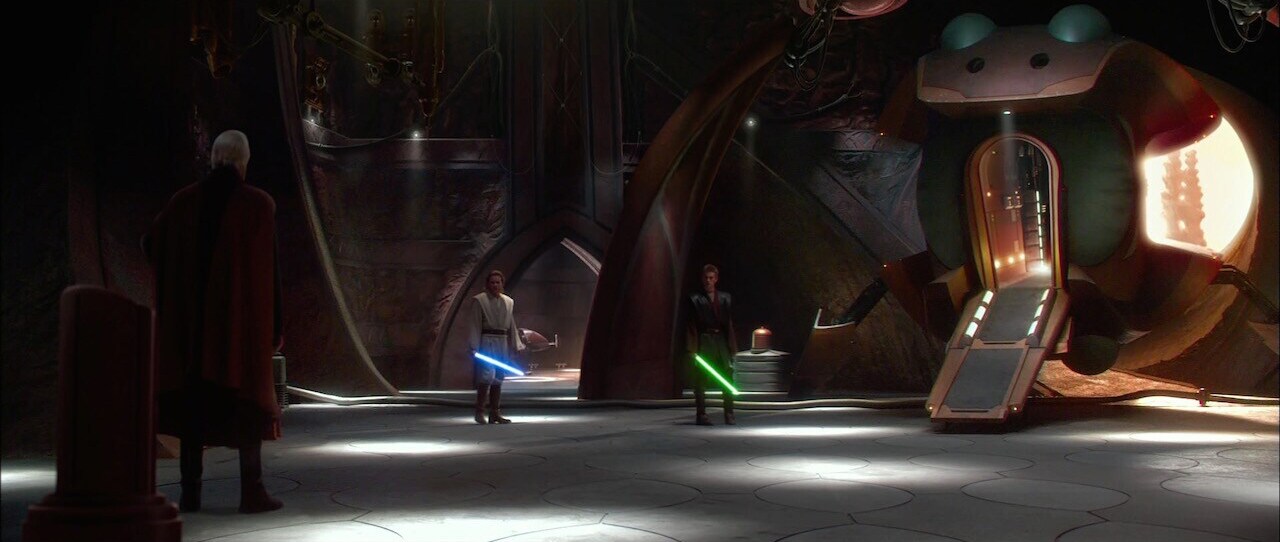When Anakin fears he may lose Padmé, tensions rise between master and apprentice.
Looking for an activity that’s fun, engaging, and educational? Each week, Teaching with Star Wars will offer unique lessons for you and your younglings that promise to foster opportunities for discovery and learning, all through the lens of a galaxy far, far away. And it sounds like the bell just rang, so let’s head to the classroom now. Punch it, Chewie!
Anakin Skywalker and Obi-Wan Kenobi have a unique relationship in Star Wars: Attack of the Clones. The master and Padawan have profound mutual respect and admiration but are not afraid to question each other in times of conflict or uncertainty. While this, in and of itself, can be a positive thing, it can also lead to some contentious debates. To disagree is one thing, but to be disagreeable…that’s something else.

The two Jedi are in pursuit of Count Dooku on Geonosis and after a blast ricochets outside their Republic gunship, Padmé falls out of the craft and onto the surface of the planet. Anakin (who is secretly in love with Padmé -- which is forbidden by the Jedi Order) is desperate to make sure the senator from Naboo is safe, whereas Obi-Wan believes stopping Dooku could end the war before it really begins.
Perhaps the main challenge is not the argument itself, but how it is enacted by the participants. Anakin is in real danger of being expelled by the Jedi Order if he persists in disobeying Obi-Wan’s mandate. He is passionate, heated, and perhaps a bit disrespectful to his master. Anakin is worried about Padmé’s well being, and while he is certainly letting his personal feelings get in the way, it is understandable that his attention is divided, because he loves the senator.

From Obi-Wan’s point-of-view, there is no debate. The fate of the galaxy is at stake. If they catch and arrest Dooku, then the conflict that has spread fear and distrust throughout the galaxy will be eliminated. The needs of the many outweigh the needs of the few. Plus, Obi-Wan seems to believe Padmé can take care of herself and that she would agree with him; capturing Dooku is paramount. But threatening expulsion, while a distinct possibility, is extreme and is not an example of trying to use compassion or empathy. Rather, it is aggressive and single-minded.

It is only when Obi-Wan reminds Anakin that had Padmé been in the Padawan's position, there would be only one option. "She would do her duty," Anakin says as he calms down. But what do the two learn about each other? Anakin, for all his bravado, knows Obi-Wan is correct, and reluctantly goes along with his master. But not out of fear of punishment, but because of his respect and trust of Obi-Wan’s teachings and purpose.
Obi-Wan does not use the temporary emotion to become a permanent marker in their relationship. While he could have reported the conversation, he did not. This is a learning moment for both of them, and his relationship with Anakin is more important than a heated debate in a volatile situation. Both must let go of their pride and remember it is the manner in which we disagree, and not the matter itself, that ultimately shape our relationships and understanding of one another.
Ask your Padawan to think about a time in which they disagreed with a parent, teacher, or mentor. How did he or she communicate their feelings? Was it full of intense emotion, rational thought, or somewhere in-between? Have them break down the situation for you, but encourage them to focus on how both parties handled it, rather than the debate itself. Most likely, their disagreement will not have far-reaching, galactic implications. But we all have a vote on how disagreements impact our long-term relationships with those we trust.
Dan Zehr is the host and brand director of Coffee With Kenobi, a podcast that examines the mythology of Star Wars from a place of intelligence and humor. He is also a high school English teacher with an MS in Teaching and Learning.
Site tags: #StarWarsBlog

